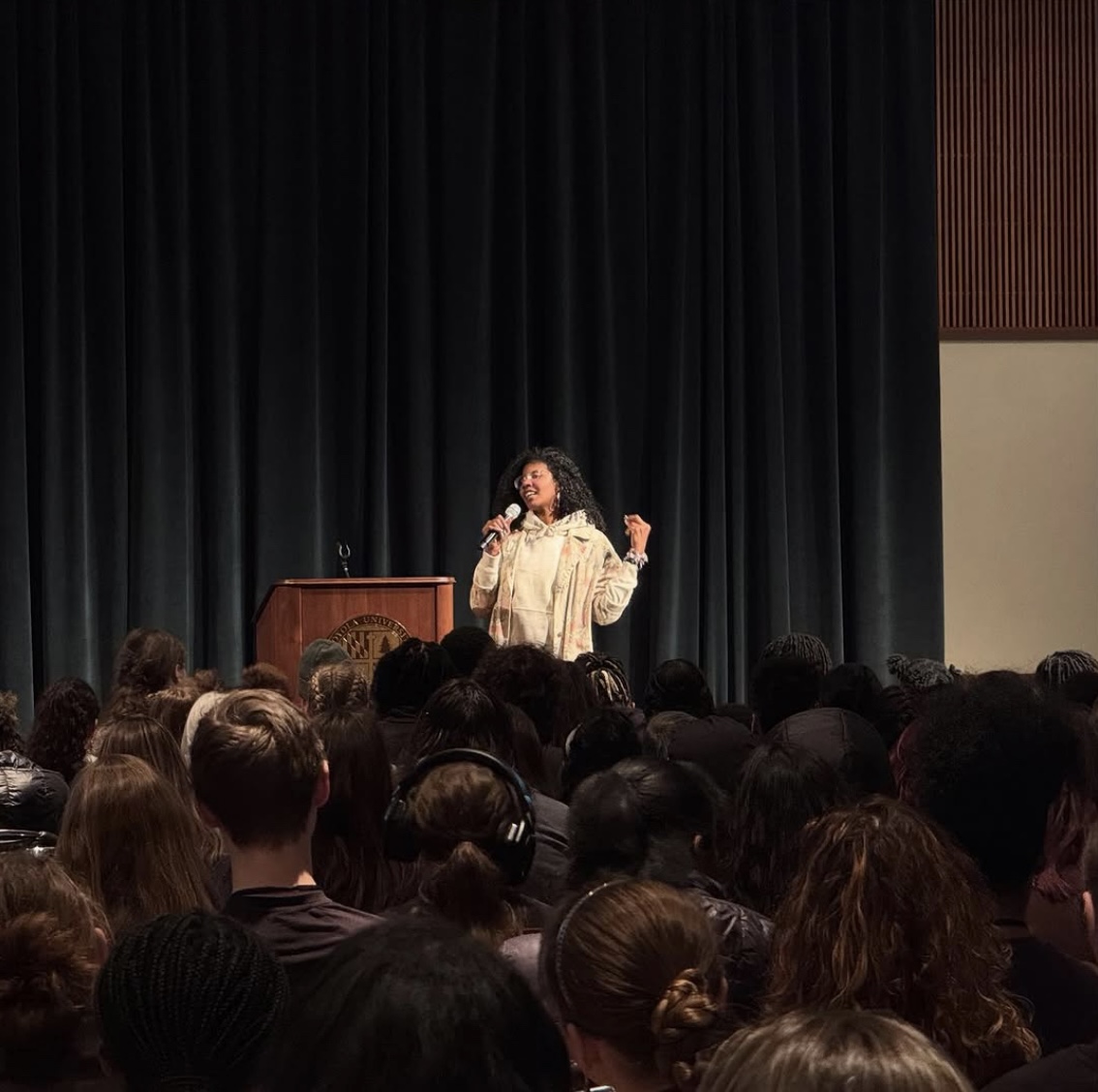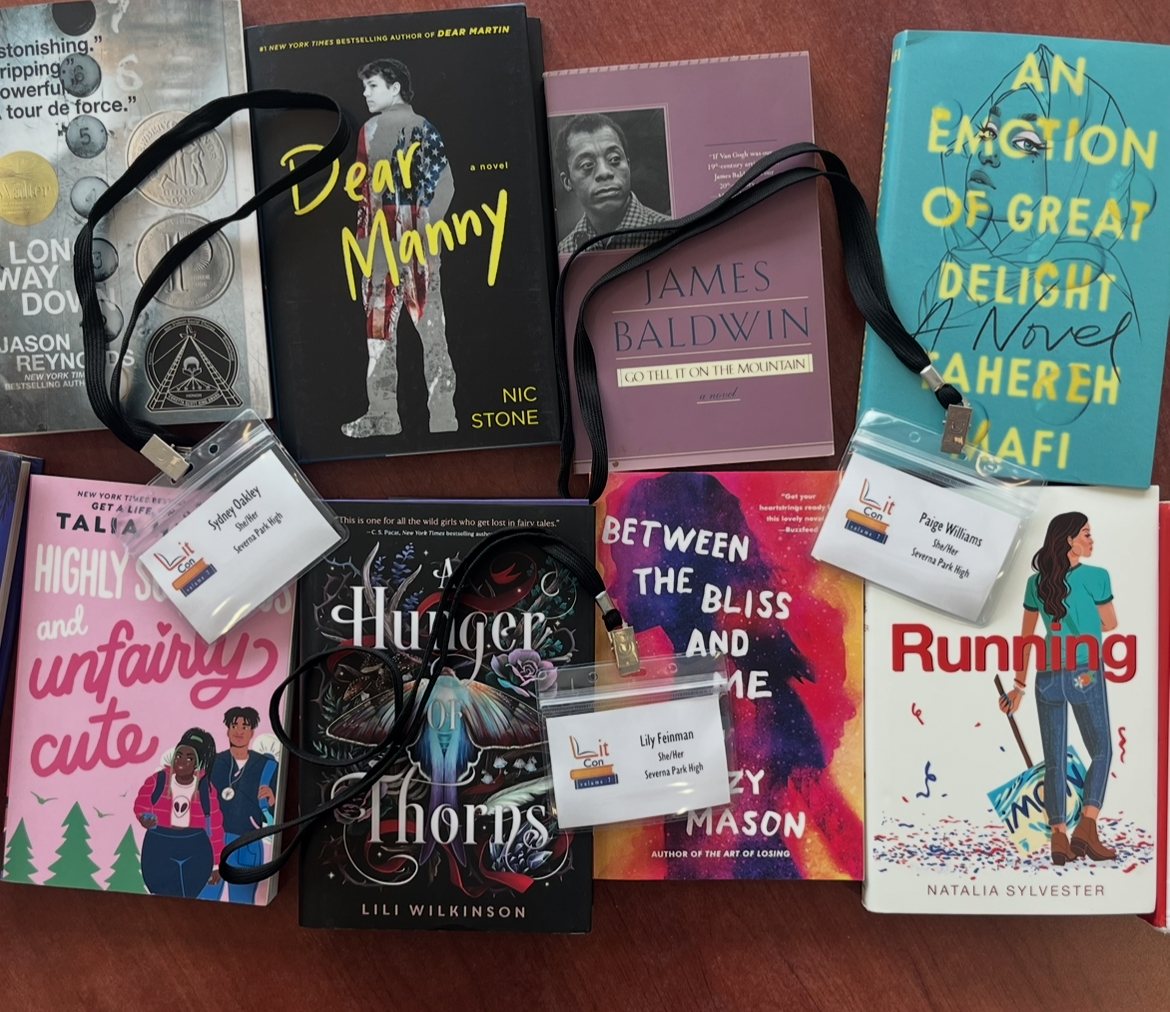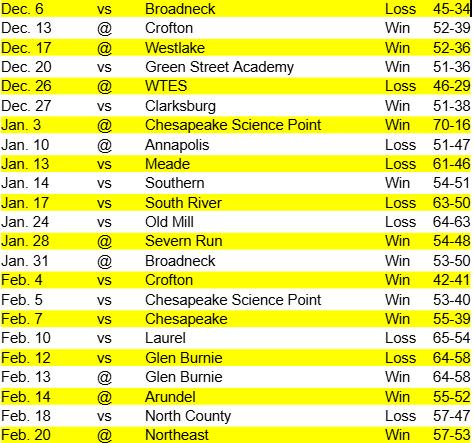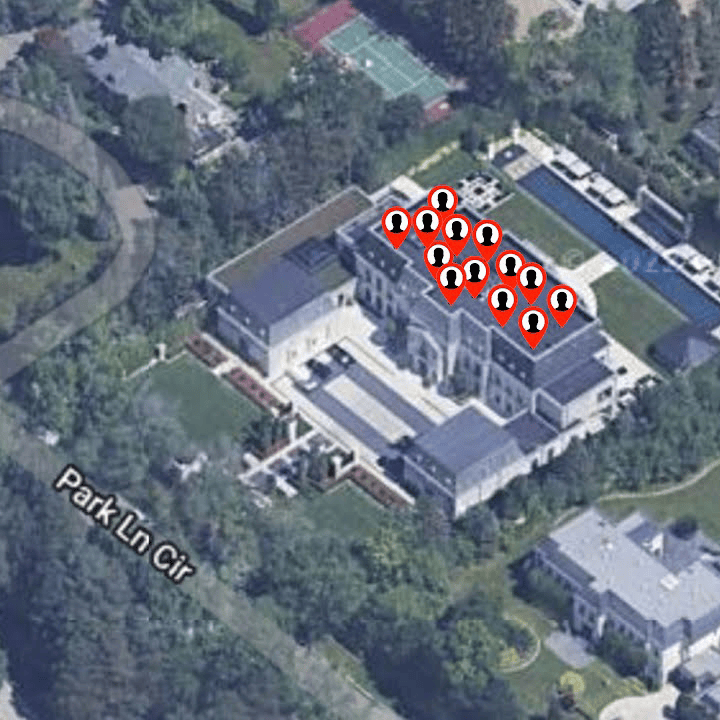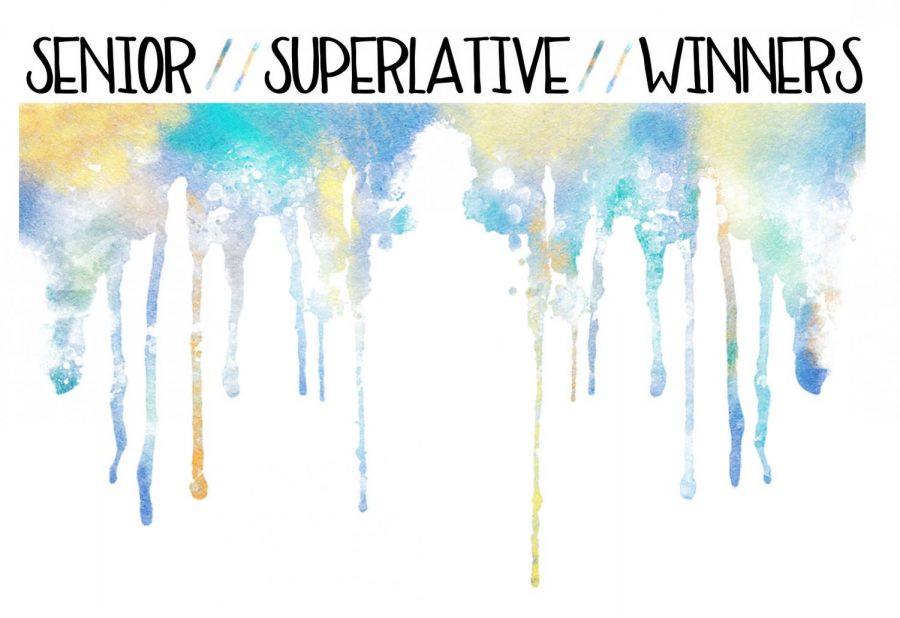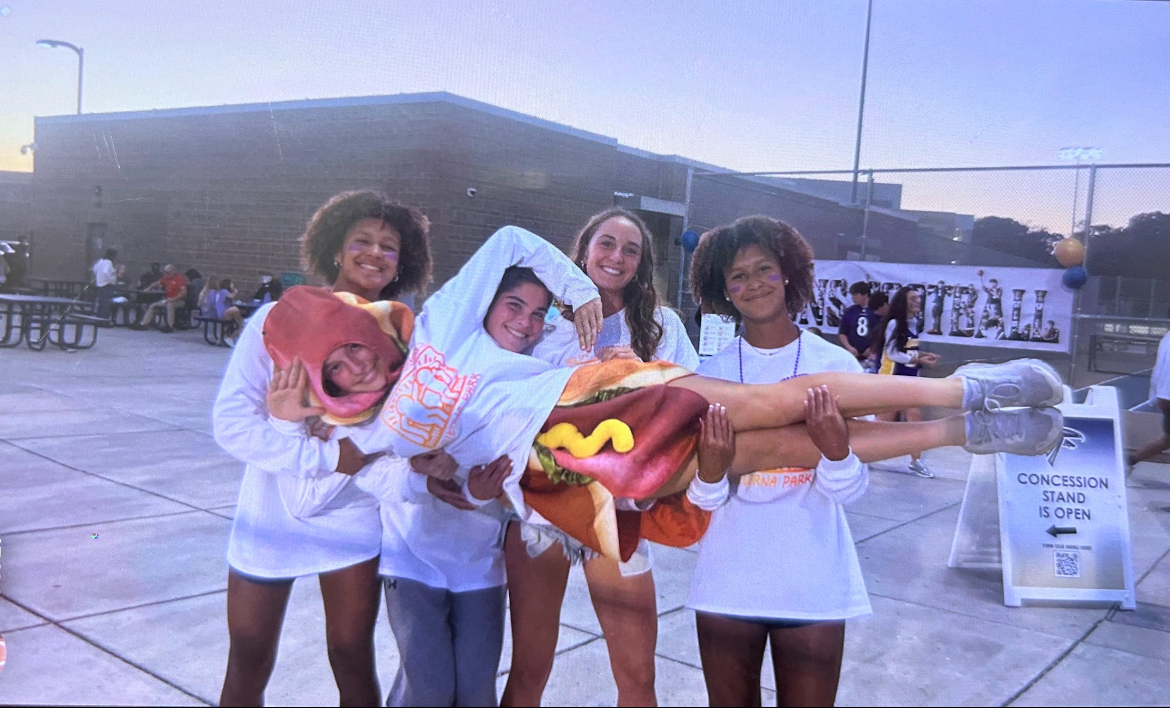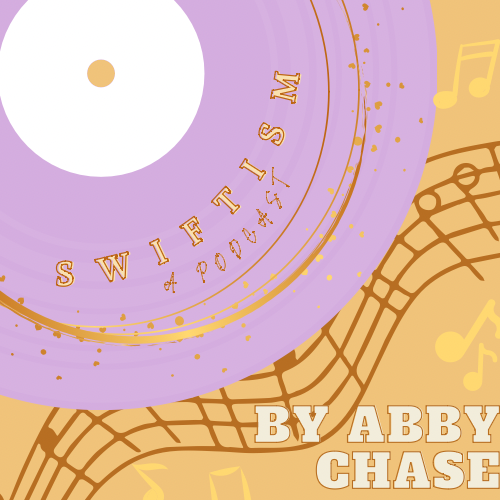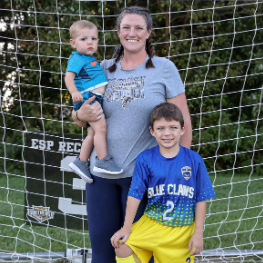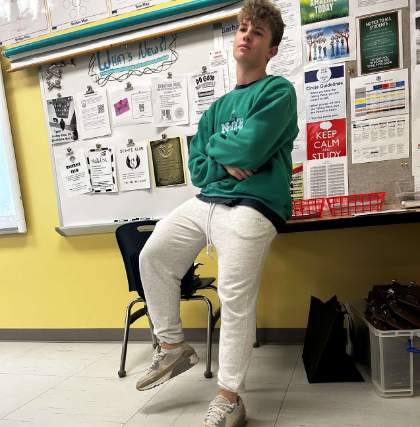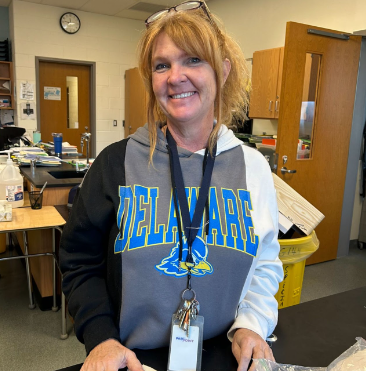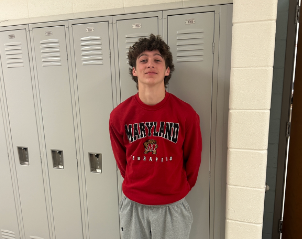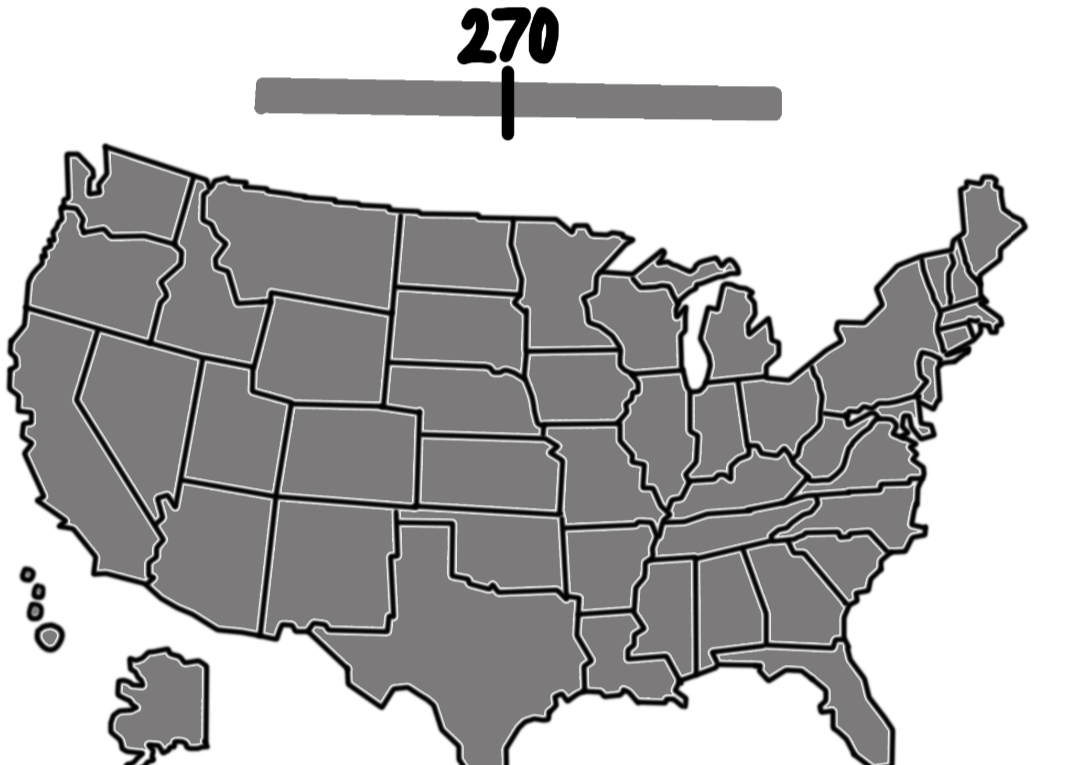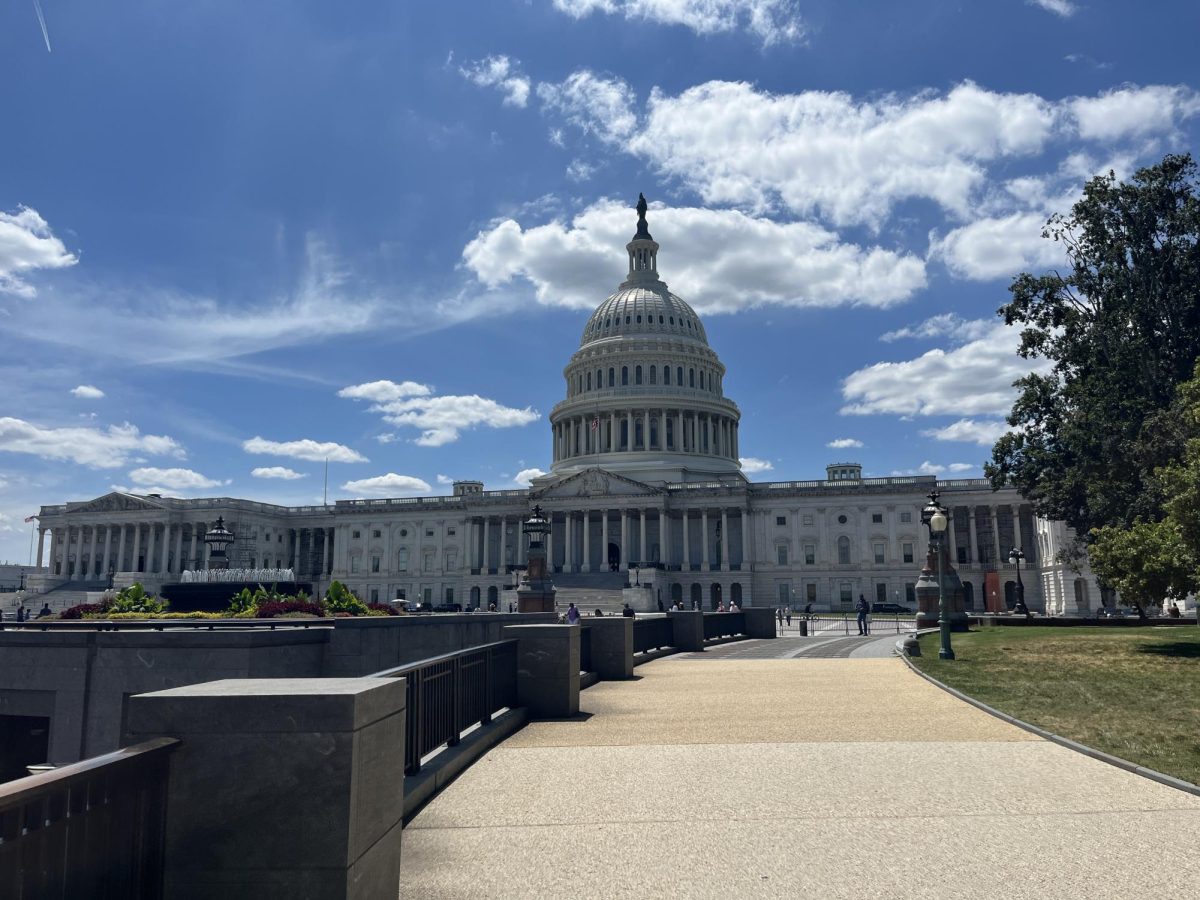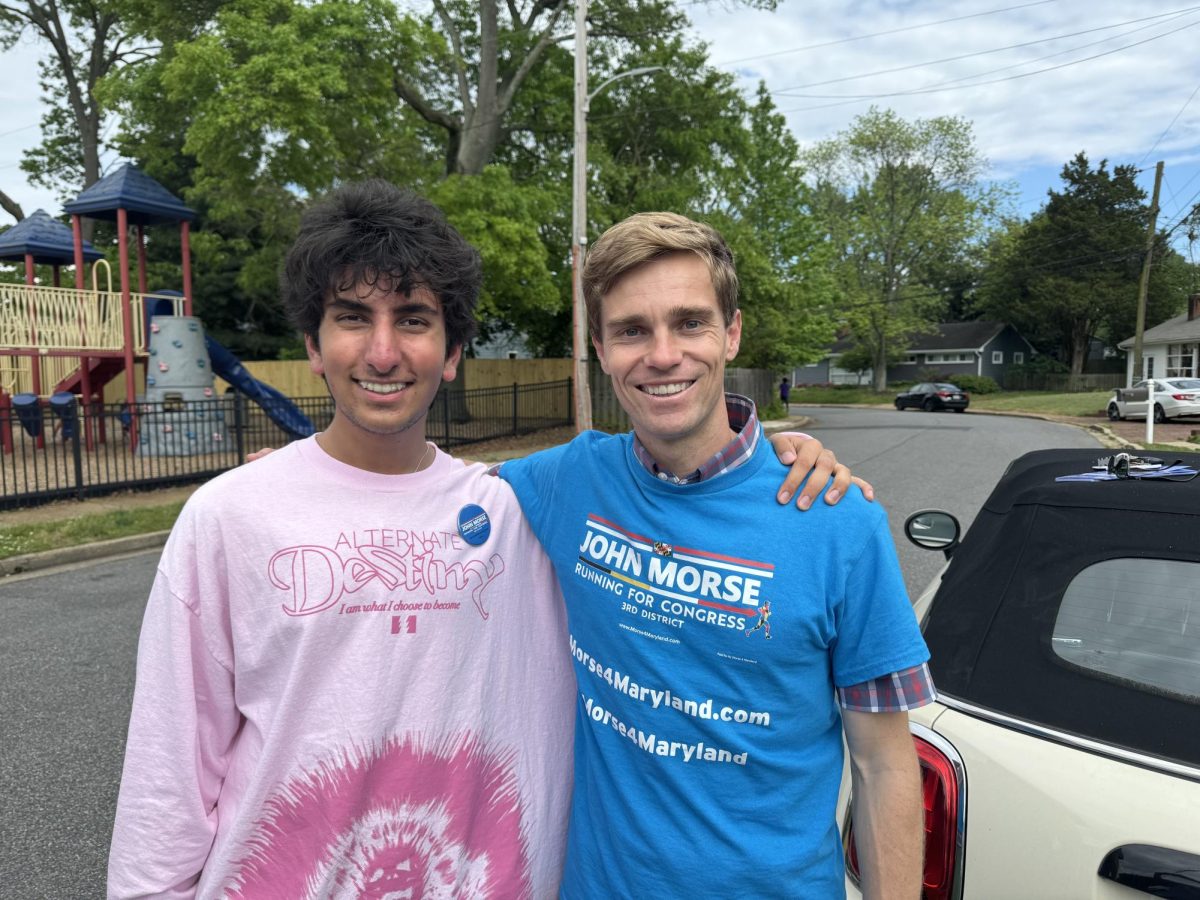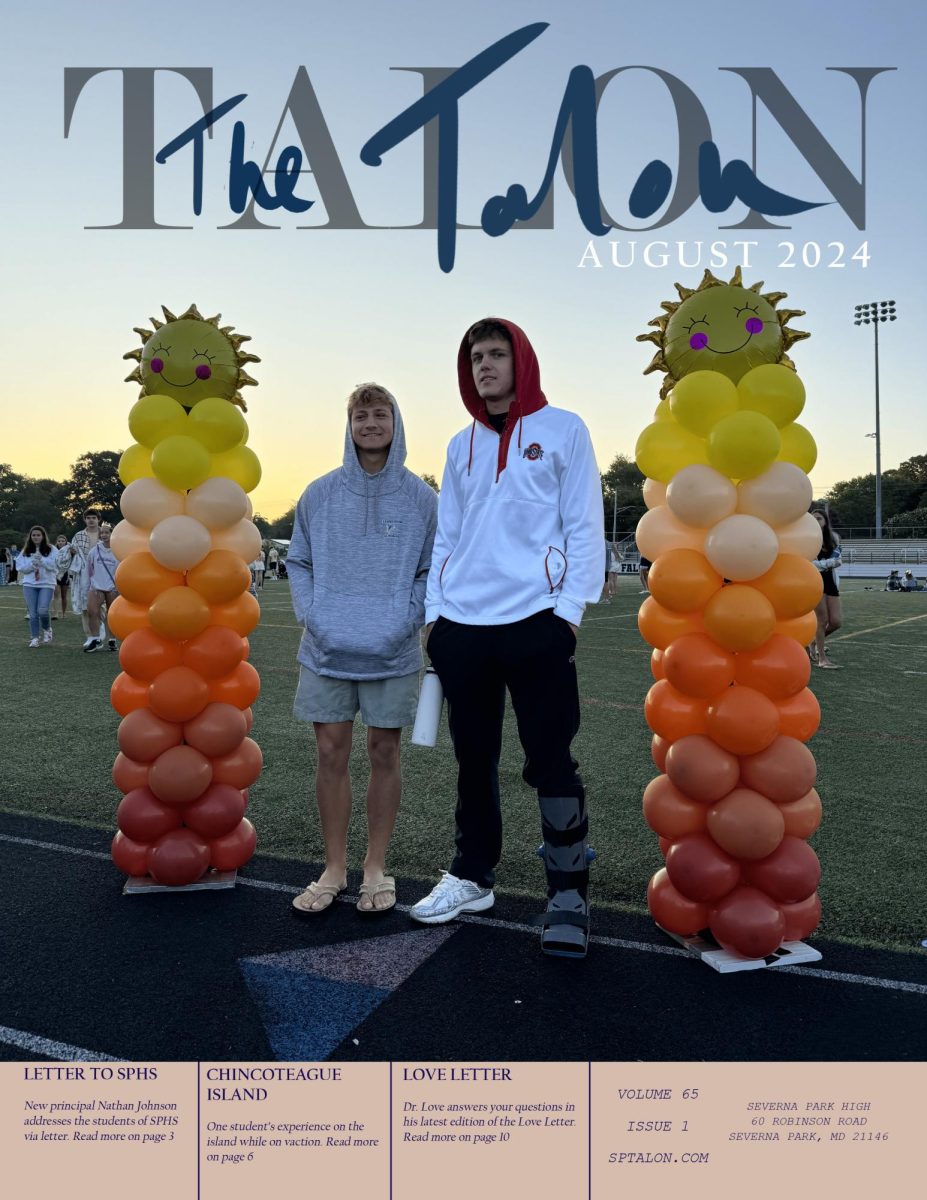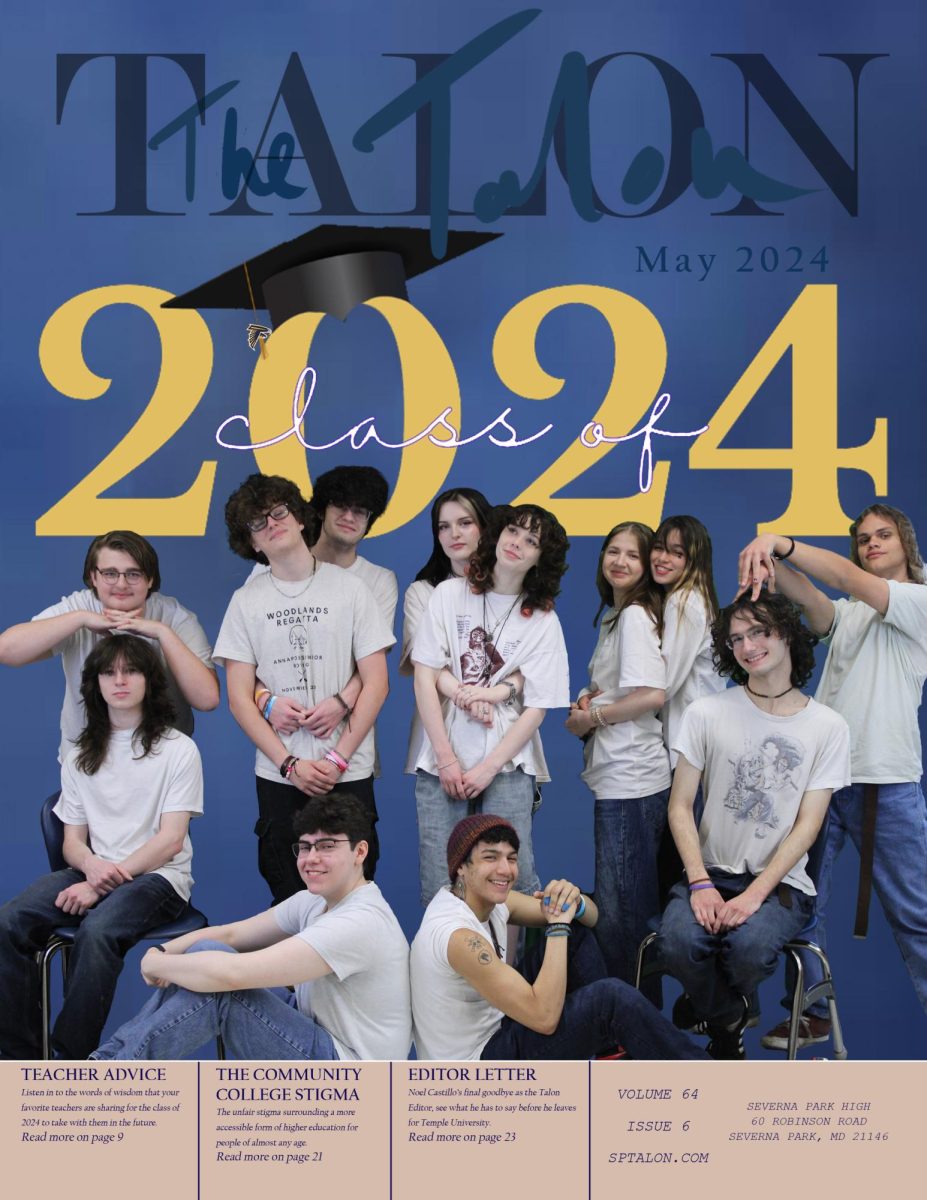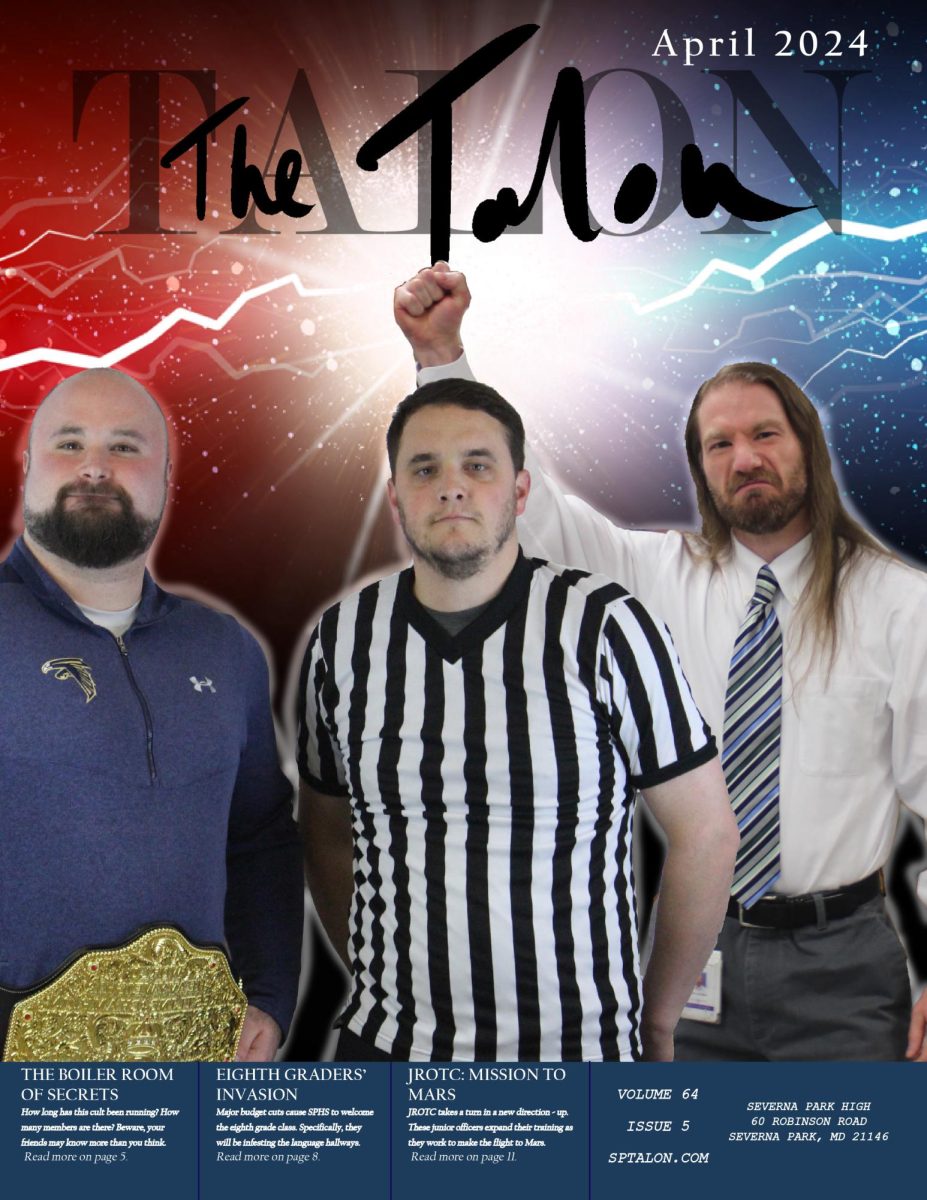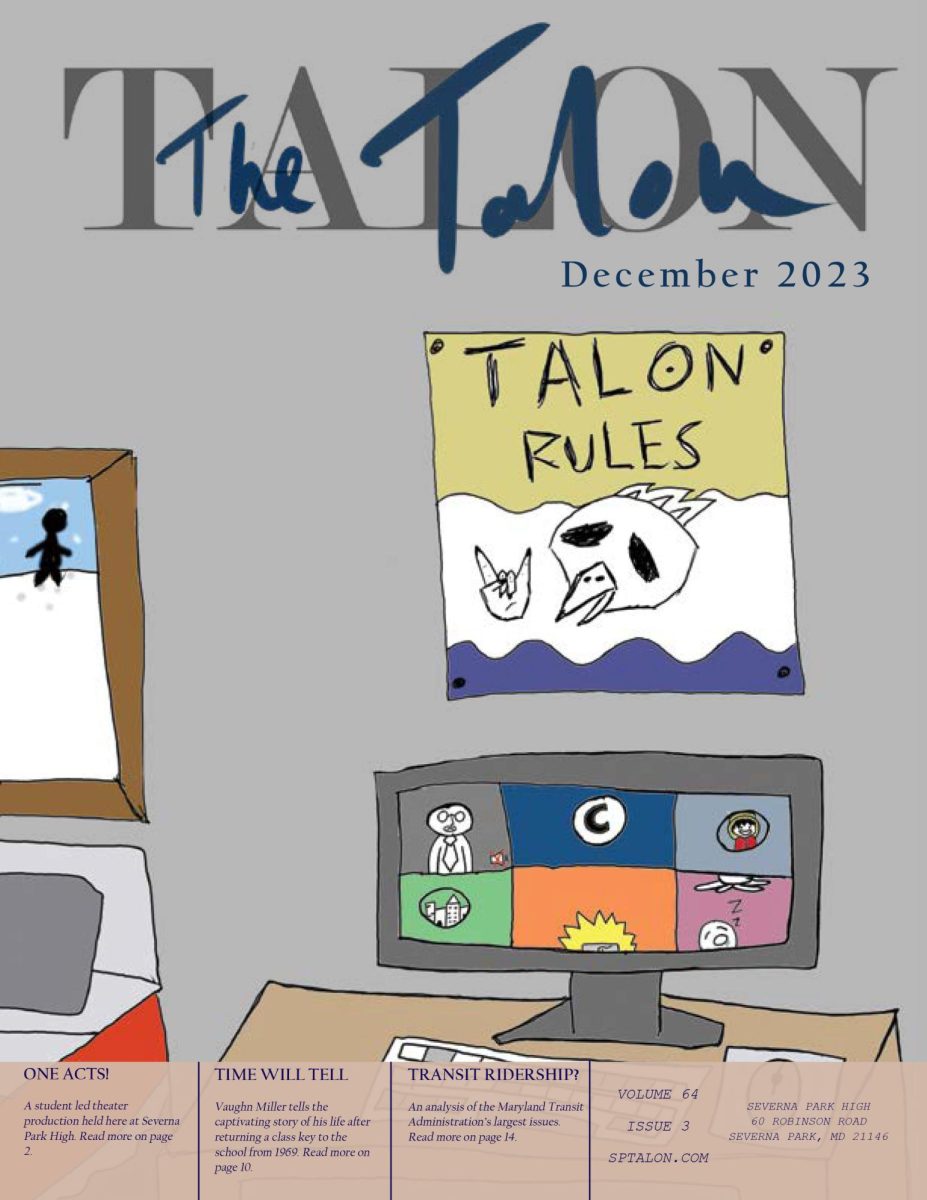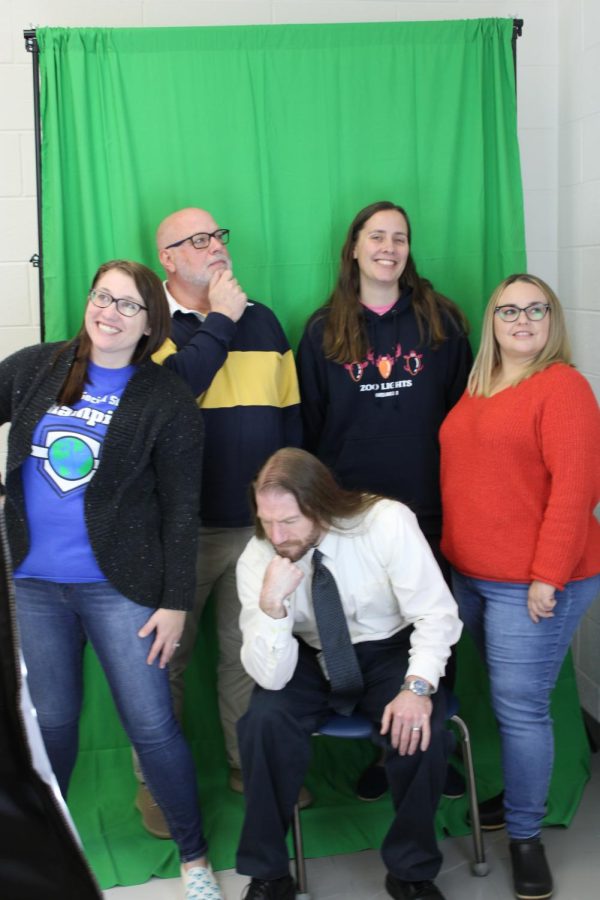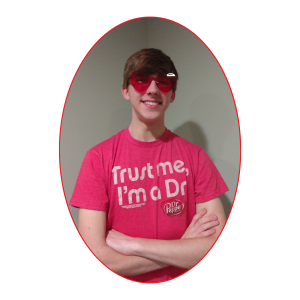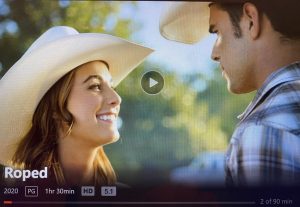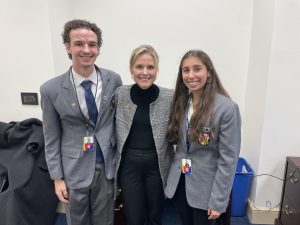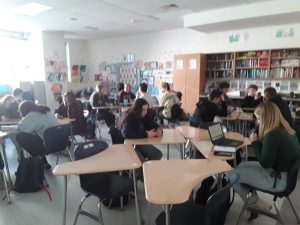Teacher Features Vol. 1.5… Expansion on Social Studies Department
Expanding information on various social studies teachers from volumes one and two (December and February Editions).
An unedited, behind the scenes photo that was taken in preparation for the December Issue cover. The five teachers were wrangled together on a Parent Teacher Conference day before Thanksgiving break for a green screen photoshoot. Haring, (second from left) one of the core social studies teachers, believes that school is a good environment for young and older people alike. “It’s great. I enjoy it. It keeps me feeling young because I go to school everyday. It doesn’t feel like work, it feels like I’m going to school,” Haring said.
February 9, 2023
The social studies department features teachers who have a general love for social studies and uncovering hidden secrets about the historical habits of mankind. But each teacher has unique perspectives and favorite aspects of the term: “social studies.” Timothy Dunbar’s niche is geography. He witnessed the incorporation of geography into various current course curriculums.
“Geography’s kind of necessary to understand what’s going on in the world. I’m not talking about physical geography, I’m talking about human geography. The cultures of people, how they run their governments, how they operate their societies, their belief systems, economic systems. All of that plays a role in understanding the world and its geography. When the state switched to a year long requirement of government, that’s kind of when geography went out the door,” Dunbar said. “I majored in geography in college, I’ve always done social studies. The love for social studies directed what I wanted to teach. It took me six years to go through college because I changed my major. Then I went to school part time and it was inexpensive at the time in California. Not that way anymore obviously, but I could afford to go a fifth year a sixth year, take more classes while I decided what to do.”
Juxtaposing Dunbar, current US History teacher Mark Haring especially loves history and has taught multiple different history courses in his time as a teacher.
“This year I teach Honors and AP US History. That can change from year to year, depending on the department’s needs. Most recently I taught Women’s History. We used to have Maryland History and I taught that for a while,” Haring said.
Haring has taught for 29 years and has been interested in history since a young boy thanks to an increase of general public intrigue and willingness to learn at the time as well as a swell of patriotism at the time. The big, one-word factor that contributed most:
“Bicentennial. I was in second grade in 1976 and I lived close to Philly, so my dad took me to all these bicentennial events and I was hooked,” Haring said.
Haring is also the Rho Kappa or Social Studies Honor Society director. He conducts meetings every month or other month with students in the classroom and in a virtual Google Meet.
“I’ve been doing that since it was a club, probably like 10 years now. A student approached me and asked if i wanted to sponsor the social studies honor society and i said yes,” Haring said.
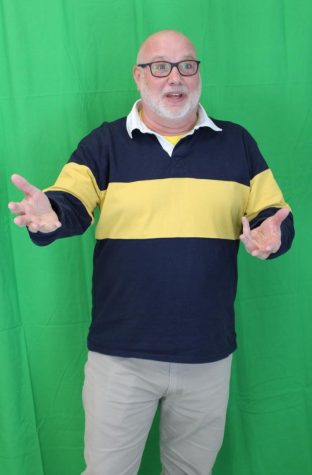
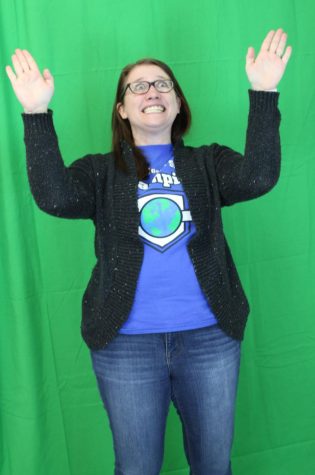
Poole, the current social studies department chairperson, has taught for 15 years. Her special interest is government on the local, national, and international levels.
“This year I’m only teaching AP, which is really odd. usually people teach AP and an elective or core class. This year I only have AP US government and then one class of AP Comparative Government. As department chair you only teach four classes. Normally teachers teach six classes. I’m supposed to spend my other planning period purchasing things but also i do walkthroughs. Each marking period I’m supposed to visit every single person in the department and I have a checklist of things I’m looking for in the lesson and I share that with administration. It’s evaluative but not evaluative because I don’t have any power to [say] ‘you’re a good teacher, you’re a bad teacher, you should get paid more and you should get paid less.’ I’m just collecting data for administration. here’s what’s happening that you might not be seeing,” Poole said.
Some final tips and comments from the department:
“There’s so many other things that encompass social studies. I always find it kind of humorous when students go: ‘I’m not going to take any electives, I hate history.’ I mean, over half of our electives are not history.” Dunbar said.
Dunbar even has advice for other teachers who may have started recently: “I have one senior with a full time schedule. Once every four years, you end up with a senior advisory and get a bit of a break.”
“You have good years and bad years, and you just have to keep that in perspective. When you’re having a bad year, you reflect on it and always focus on change; even midyear, things can change,” Haring said. “I like that we have semester classes that allow for switching up. It brings a breath of fresh air in the middle of the year but overall it’s been mostly good years.”
“I loved my AP Government teacher in high school and I loved government, I thought I wanted to work at the government. I want to work on the Hill, I want to be one of those people in the fancy suits, I want to be with all the famous people. I wanna walk down the hall with Bernie Sanders and [say] ‘Hey Bernie!'” Poole said.



